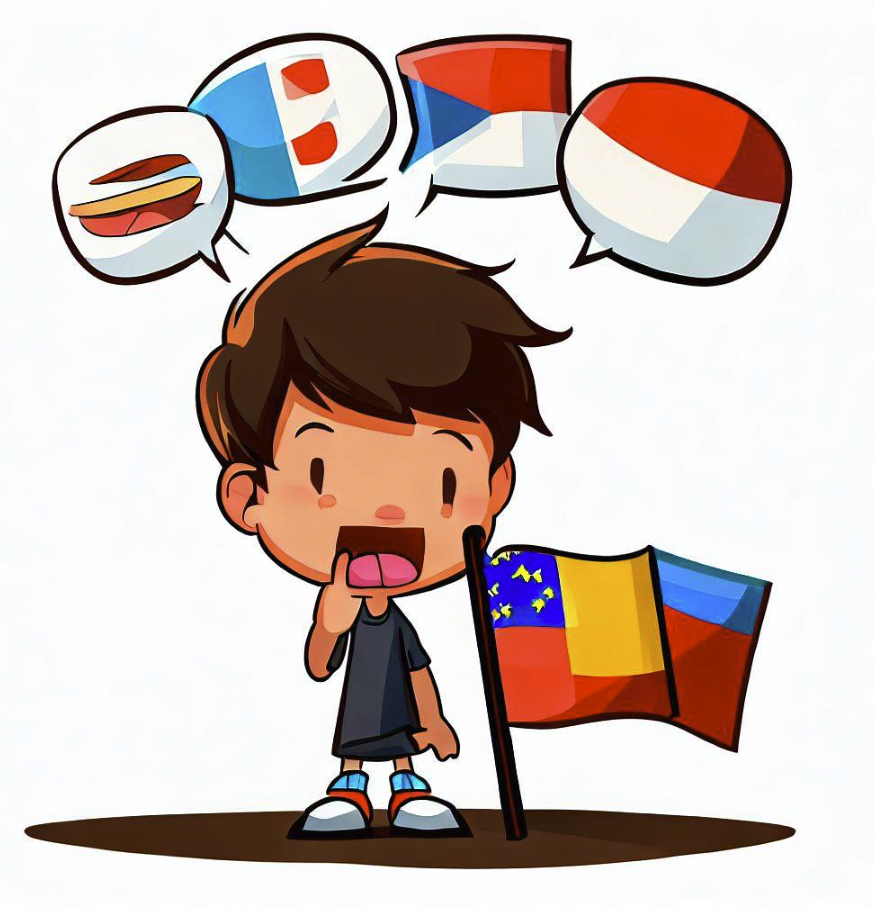Learning a new language can be a challenging task for adults.
Unlike children, who seem to effortlessly pick up languages, adults often struggle to achieve fluency.
This phenomenon has puzzled linguists and educators for years.
Adults face challenges in language learning due to factors like the critical period hypothesis, reduced neuroplasticity, and phonetic discrimination, but with the right strategies and dedication, they can achieve fluency.
Below we look further into the reasons why adults find it difficult to learn languages like children do.
We will look into the cognitive, physiological, and environmental factors that contribute to this disparity.
By understanding these factors, we can develop effective strategies to help adults overcome language learning barriers.
Table of Contents
The Critical Period Hypothesis
One of the main reasons why adults struggle to learn languages like children is the critical period hypothesis.
This hypothesis suggests that there is a specific window of opportunity for language acquisition, which begins to close around puberty.
During this critical period, children’s brains are highly receptive to language input, allowing them to acquire languages with remarkable ease.
Research has shown that children have a greater capacity for language learning due to the plasticity of their brains.
Their neural pathways are still developing, making it easier for them to absorb new information and form connections between different linguistic elements.
In contrast, adult brains have undergone significant structural and functional changes, making it more challenging to acquire new languages.
Neuroplasticity and Language Learning
Neuroplasticity refers to the brain’s ability to reorganize itself by forming new neural connections throughout life.
While adult brains may not be as plastic as children’s brains, they still possess a certain degree of neuroplasticity.
However, this plasticity decreases with age, making it more difficult for adults to learn languages.
Studies have shown that language learning activates specific regions of the brain, such as the hippocampus and the prefrontal cortex.
In children, these regions are more malleable, allowing for efficient language acquisition.
In adults, these regions are less flexible, leading to slower and less effective language learning.

Phonetic Discrimination
Another factor that contributes to the difficulty adults face in learning languages is phonetic discrimination.
Children have a remarkable ability to distinguish between different sounds and phonetic patterns, which is critical for language acquisition.
This ability gradually declines as individuals grow older.
Research has shown that adults struggle to perceive and produce certain sounds that are not present in their native language.
For example, an English speaker may find it challenging to pronounce the rolled “r” sound in Spanish or the tonal variations in Mandarin.
These difficulties stem from the loss of phonetic flexibility that occurs with age.
Why Can’t Adults Learn Languages Like Children?
Language Learning Strategies
While adults may face inherent challenges in language learning, they can still employ effective strategies to enhance their language acquisition abilities.
Here are some strategies that can help adults overcome the barriers they encounter:
- Immerse Yourself: Surround yourself with the target language as much as possible. Watch movies, listen to music, and engage in conversations with native speakers.
- Practice Regularly: Consistency is key. Set aside dedicated time each day to practice listening, speaking, reading, and writing in the target language.
- Use Technology: Take advantage of language learning apps, online courses, and interactive tools that provide personalized feedback and practice opportunities.
- Find a Language Partner: Engage in language exchange programs or find a native speaker who is willing to practice with you. Regular conversation practice can significantly improve your language skills.
- Focus on Comprehension: Prioritize understanding the overall meaning of a conversation or text rather than getting caught up in every word or grammar rule.
However, an alternative perspective:
Children are actually TERRIBLE at learning languages
FAQs: Why Can’t Adults Learn Languages Like Children?
1. Is it really impossible for adults to learn languages like children?
No, it is not impossible for adults to learn languages like children.
While adults may face certain challenges due to cognitive and physiological factors, they can still achieve fluency with the right strategies and dedication.
2. Can adults become fluent in a new language?
Absolutely! With consistent practice, immersion, and effective language learning strategies, adults can become fluent in a new language.
It may take more time and effort compared to children, but it is certainly achievable.
3. Why do children seem to learn languages effortlessly?
Children have a higher capacity for language learning due to the plasticity of their developing brains.
Their neural pathways are more flexible, allowing them to absorb new information and form connections between linguistic elements more easily.
4. Does age affect language learning ability?
Yes, age does affect language learning ability.
As individuals grow older, their brains undergo structural and functional changes that make it more challenging to acquire new languages.
However, adults can still learn languages with the right strategies and dedication.
5. Can adults overcome the phonetic challenges in language learning?
While adults may find it more difficult to perceive and produce certain sounds in a new language, they can improve their phonetic discrimination abilities through focused practice and exposure to the target language’s phonetic patterns.
6. Are there any advantages that adults have over children in language learning?
Yes, adults have certain advantages over children in language learning.
They possess higher cognitive abilities, such as problem-solving and critical thinking skills, which can aid in understanding complex grammar rules and vocabulary.
Adults also have access to a wider range of resources and learning materials compared to children.
7. Can learning multiple languages simultaneously help adults overcome language learning difficulties?
Learning multiple languages simultaneously can be challenging for adults, especially if the languages are linguistically similar.
It is generally recommended to focus on one language at a time to avoid confusion and ensure effective language acquisition.
8. Are there any specific language learning methods that work best for adults?
The most effective language learning methods for adults vary depending on individual preferences and learning styles.
Some adults may benefit from immersive experiences, while others may prefer structured classroom settings or online courses.
It is important to find a method that suits your learning style and provides ample opportunities for practice and exposure to the target language.
9. Can adults achieve native-like fluency in a new language?
While it may be challenging for adults to achieve native-like fluency, they can still attain a high level of proficiency with consistent practice and immersion.
Native-like fluency often requires early exposure and extensive immersion in the target language, which may be more difficult for adults to replicate.
10. Are there any age limits for adults to start learning a new language?
No, there are no age limits for adults to start learning a new language.
It is never too late to embark on a language learning journey.
Whether you are in your 20s, 40s, or even older, you can still acquire new languages and enjoy the cognitive and cultural benefits that come with language proficiency.
Summary
While adults may face inherent challenges in learning languages like children, it is important to remember that language acquisition is a lifelong process.
The critical period hypothesis and the decline in neuroplasticity and phonetic discrimination with age contribute to the difficulties adults encounter.
However, with the right strategies, dedication, and exposure to the target language, adults can overcome these barriers and achieve fluency.
By understanding the factors that affect adult language learning, educators and learners can develop effective approaches to enhance language acquisition in adulthood.


